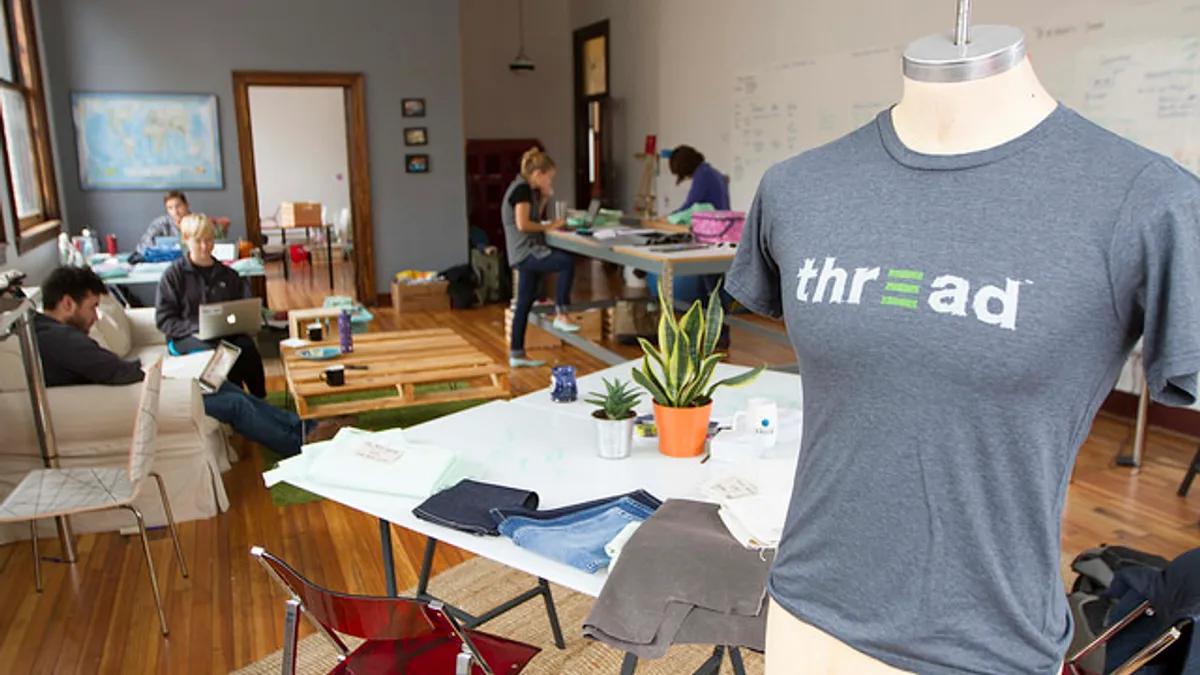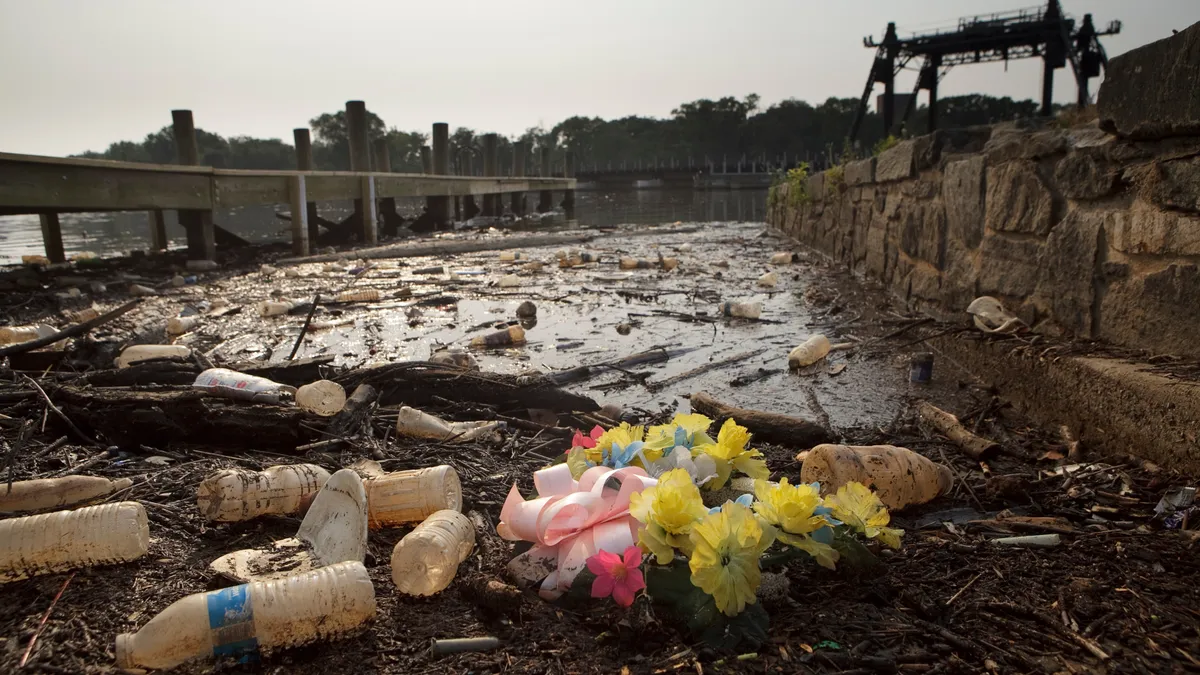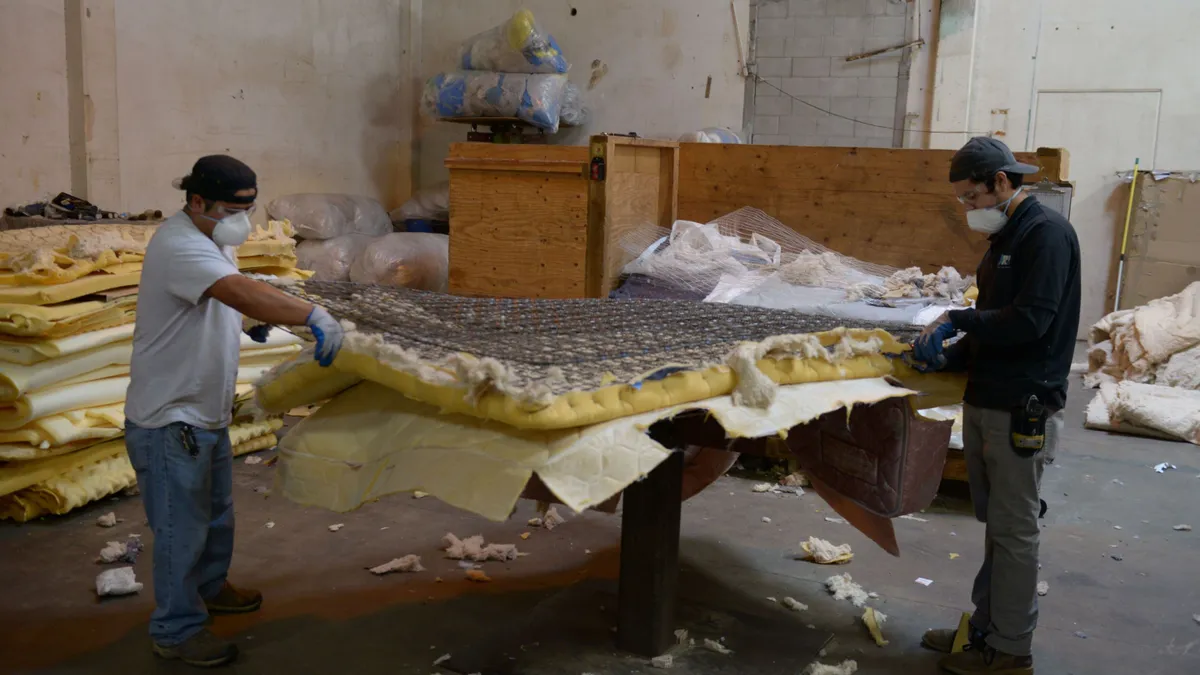Six years ago, the Haiti Earthquake brought chaos and destruction to thousands of people, leaving miles of land under many piles of debris.
It also brought Ian Rosenberger, a Pittsburgh, PA-native, to the island to help raise money for earthquake relief—and eventually find a new life for the left-behind waste.
In 2010, Rosenberger started building Thread, a plastics-to-fabric company designed to tackle two main issues in third-world areas: poverty and trash. As a photographer, he was originally drawn to the post-earthquake island to take pictures and sell those photos for relief money. However, on his initial trip, he was inspired to do more; to help the people of Port-au-Prince get employment while collecting the trash that littered streets.
"I started to develop a philosophy around jobs; that poverty is not the absence of wealth, but it's the absence of dignity. The way to create that dignity is to give somebody the opportunity to provide for themselves and their families," Rosenberger said.
With the idea that trash could be turned into money, Rosenberger began a journey to employ Hatians, collect plastic waste, and recycle it into usable thread. "That's how Thread was born," he said.
Starting a business from the ground up ... literally
As a prior MTV producer and "Survivor" contestant, Rosenberger may have seemed like a jack-of-all-trades. However plastic recycling was something he was barely familiar with, so he turned to the Internet for guidance and resources.
"I Googled what we could turn trash into, and I found online that Patagonia made a jacket out of recycled polyester made from [plastic] bottles. I said, 'Well what if we could create yarn and fabric from bottles that we found on the ground in Haiti, and allow people to work in that supply chain?'," he explained.
And that was the start. After countless hours of research, networking, and even posing as a graduate student to get a tour of a recycling facility, he began learning the tricks of the trade. Week after week, question after question, he became an expert in the process of recycling plastic. Though Rosenberger and his Thread team continue to learn about the industry every day, their hunger for knowledge keeps the company thriving.
"I'm really proud that we've been able to build a culture based on being curious. I think a lot of people think that when you start a business, you have to be an expert in your field, and I think that Thread is a perfect example where naivety can be your greatest ally," said Rosenberger. "We don't know how it's supposed to be. We just do what we think is the right thing."
Keeping social responsibility at the forefront
As many companies in the waste industry struggle to stay in the black, some have debated the profitability of recycling.
However, Rosenberger expressed his belief in the importance of waste reduction and diversion, no matter the cost. When asked if he ever has trouble balancing profitability with social responsibility — especially when working in the poorest areas of the country — Rosenberger passionately replied.
"Absolutely not, and I think anybody who does is full of it," he exclaimed. "I think that every argument we have about waste, anybody who says that waste is something we feel conflicted about because we can make more money by storing it in the ground or burning it or burying it is not thinking at all with any sense of longitude or foresight. There is no creativity in that thought at all."
Rosenberger went on to explain his belief in the "crisis" of waste, and the importance of innovation when developing new ways to use resources.
"The sheer amount of garbage that gets thrown onto the ground, floats into the ocean, then contributes to problems that we haven't even really thought about yet I think is the single biggest opportunity in innovation since the computer," he explained. "I don't even think I'm exaggerating when I say the amount of resources we need to support 10 billion people on the planet dictates that waste, in the coming decades, is going to be a thing of the past. It's not going to exist anymore. And in my mind, any company that says ‘Oh we’ve got to balance what’s coming with what is' is making it up."
Weaving the future of Thread
The growth of Thread has been supported by partners and investors, all offering different resources to the young company. Rosenberger said that Thread has worked with many partners, including an executive at Under Armour and the former Chief Operating Officer at Timberland. "These are brands that have been around the block. They know what textiles are, they know what waste is, and we've been really fortunate to get to know very closely people who are recycling in the developing world and how difficult that process is," he explained.
With such substantial support comes the opportunity for Thread to expand its operations. While it currently works in Haiti and some parts of Honduras, Rosenberger explained that the idea of working in poor United States communities is "very attractive" to Thread executives. The company is also looking to expand in other countries, such as Syria, Afghanistan, and China.
"These are areas that need jobs, that nobody wants to go invest in the business. I think that's what we're the best in the world at, is that opportunity," he said.
When it comes to other companies who also wish to be successful in the waste and recycling industry, Rosenberger has simple advice.
"Just do it, and do it unapologetically," he said. "It's really daunting because you may think 'I don't know what I'm doing or how I'm doing it' but we all experience waste and trash every single day. We're all knowledgeable of the things we use every day. All we have to do is come up with creative ways to connect those back to our daily lives in a way that is useful ... It's just about getting started.
"Honestly, I think you just have to stick. People ask 'What's the secret?,' and we don't have one. We're still young as a company. But I'm finding the one thing we've been good at is that we're not going away. You have to just refuse to go away. We're still here, and we'll continue to be here until we make this something."



















